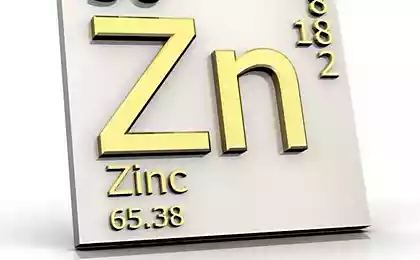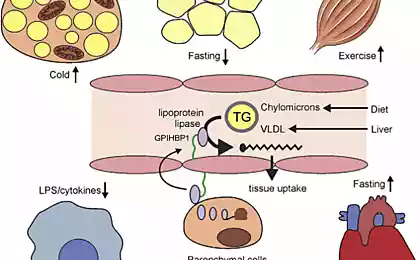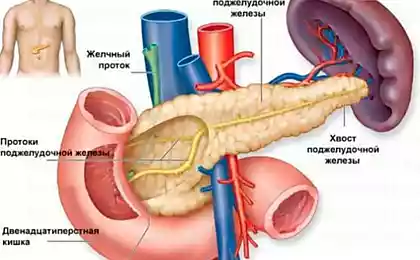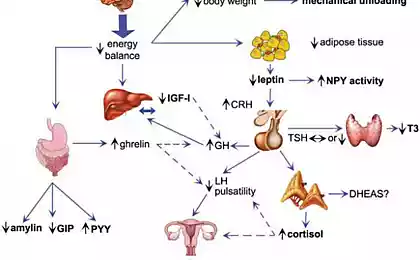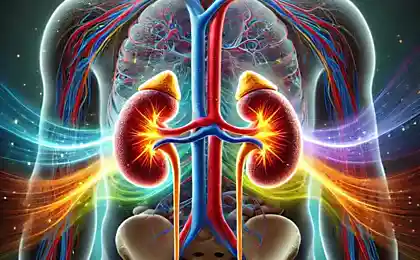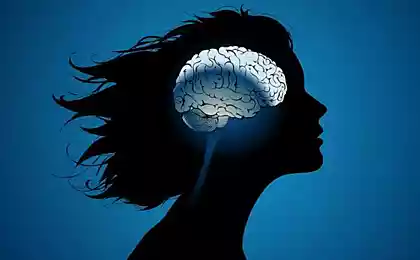553
Cortisol, estrogen, insulin As nutrition to balance the major hormones
What to eat to balance hormones?
When our hormonal system is in balance, hormones behave as wise mentors for the body by sending commands by type "do this" or "do that," the cells of our body to ensure homeostasis.
Homeostasis – this is the state when you have gorgeous thick hair, strong nails, clear skin, stable mood and weight, you are stress resistant, have good digestion and libido.
But, unfortunately, our hormonal system is very much exposed to the environment, in particular the effects of toxins, poor sleep, poor nutrition, instability of the intestinal microflora and even bad thoughts.
Isolated 5 of the most important hormonesaffecting homeostasis of the body, and to lead them in the balance, do not have to immediately resort to medication or dietary supplements to start is to try to handle the situation with the help of specially selected products that have the ability to restore hormonal balance.

1. High levels of cortisol
How it works:
Cortisol is the major hormone of the stress response, and its production involved the adrenal glands. Elevated cortisol levels increase the blood pressure and sugar levels. Chronically high levels of the hormone can lead to feeling of increased excitement or unease in the body, depression, rapid aging, weight gain, problems with blood sugar and metabolic syndrome.
What you may notice:
Food solution:
Extra black chocolate can reduce levels of the hormone cortisol. Also from time to time to eat the fish grown in natural conditions. Delicious medicine, isn't it?!
2. Insulin
How it works:
Insulin regulates the amount of glucose in our blood. The main problem with insulin is its continual increase, which leads to insulin resistance (when cells are not susceptible to this hormone, and glucose in the blood increases to prediabetics level or even the level of diabetes).
What you may notice:
Food solution:
Regularly eat sauerkraut (or kimchi, or other fermented vegetables): it is a product with proven efficacy to reduce the level of glucose.
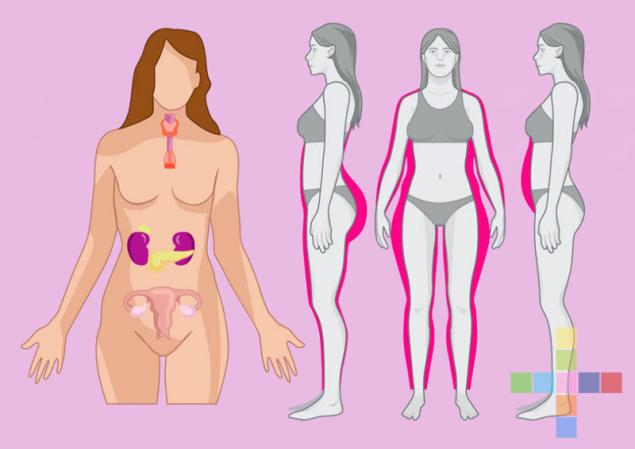
3. Too much testosterone
How it works:
Testosterone is a hormone produced in the ovaries of women and testes of men and in the adrenal glands. It is very important to experience well-being, self-confidence, maintain muscle tone, bone growth and sexual function. With its excessive rise facing 30% of women, it is fraught with acne, irregular menses, increased body hair growth, hair loss on the head and infertility.
What you may notice:
Food solution:
Often eat green beans, and pumpkin and pumpkin seeds, are rich in zinc, as it plays an important role in sexual development, menstruation and ovulation. Zinc deficiency is associated with acne and elevated androgen group of hormones to which testosterone belongs.
4. Too much estrogen
How it works:
Estrogen refers to a family of hormones that is responsible for female manifestations in the body such as Breasts and hips. But sometimes there may be a surplus of these necessary substances: more than 700 known toxins in the environment can mimic estrogen and thereby lead to pollution of the body excessive amount of the hormone.
What you may notice:
Food solution:
The manifestation of the above symptoms are eat more cruciferous vegetables such as broccoli, cauliflower, Kale. These vegetables block the estrogen, fiber helps rid your body of the excess hormone, and, in General, cruciferous help aging cells to appear and not warping around the body, wreaking havoc and speeding up aging process.
5. A low level of thyroid hormones
How they work:
Our thyroid gland is responsible for metabolism, namely, how fast or slow our body's biochemical reactions occur, including the rate of burning calories. In particular, the work of the gland is iodine, which is found in many foods, and coupled with the tyrosine for the production of thyroid hormones – hormone thyroxine (T4) and the active thyroid hormone called triiodothyronine (T3).
Approximately 10% of women found lack of thyroid hormones due to the slow work of the thyroid gland, thus energy is spent on more important functions, not satisfying the needs of the hair, skin, and intestinal health. These women suffer from a slow metabolism: they are depressed, exhausted and constipation, and quickly put on weight and have problems with hair, skin, and joints.
What you may notice:
Food solution:
Very good in this situation, the Brazilian nuts. In addition to iodine, you need selenium, zinc and copper for proper functioning of thyroid gland. Brazil nuts are the richest dietary source of selenium. Sometimes people with Hashimoto's disease suggest to avoid it. In other cases, selenium is essential for production of glutathione, to reduce the number of thyroid antibodies. Eat 1-3 Brazil nuts a day and be healthy! published
Author: Olga Sharipova
The materials are for informational purposes. Remember, self-life-threatening, for advice regarding the use of any medicines and methods of treatment, contact your doctor.
Also interesting: Hormonal balance: 5 natural ways to fight for happy hormones
The satiety hormone: why willpower is powerless against leptin
Source: themindfulbeauty.com/balansiruem-glavnye-gormony-kortizol-insulin-estrogen-tireoidnye/
When our hormonal system is in balance, hormones behave as wise mentors for the body by sending commands by type "do this" or "do that," the cells of our body to ensure homeostasis.
Homeostasis – this is the state when you have gorgeous thick hair, strong nails, clear skin, stable mood and weight, you are stress resistant, have good digestion and libido.
But, unfortunately, our hormonal system is very much exposed to the environment, in particular the effects of toxins, poor sleep, poor nutrition, instability of the intestinal microflora and even bad thoughts.
Isolated 5 of the most important hormonesaffecting homeostasis of the body, and to lead them in the balance, do not have to immediately resort to medication or dietary supplements to start is to try to handle the situation with the help of specially selected products that have the ability to restore hormonal balance.

1. High levels of cortisol
How it works:
Cortisol is the major hormone of the stress response, and its production involved the adrenal glands. Elevated cortisol levels increase the blood pressure and sugar levels. Chronically high levels of the hormone can lead to feeling of increased excitement or unease in the body, depression, rapid aging, weight gain, problems with blood sugar and metabolic syndrome.
What you may notice:
- Feel like you are constantly on the run, doing one job after another
- Difficulty with weight loss, especially in the waist area
- Frequent change of mood or depression
- The appearance of the immediate reaction of anger or rage
- Difficulty relaxing evening or a bad dream
- Weak nails or skin problems such as eczema or thin skin
- High blood pressure or increased blood sugar level (or both symptoms)
- Failures in pasatieri insufficient attention, especially in times of stress
- Craving for salty or sweet foods
- Low libido
Food solution:
Extra black chocolate can reduce levels of the hormone cortisol. Also from time to time to eat the fish grown in natural conditions. Delicious medicine, isn't it?!
2. Insulin
How it works:
Insulin regulates the amount of glucose in our blood. The main problem with insulin is its continual increase, which leads to insulin resistance (when cells are not susceptible to this hormone, and glucose in the blood increases to prediabetics level or even the level of diabetes).
What you may notice:
- Huge cravings for sweets
- It's hard to stop eating(or stop after one serving) high carbohydrate food such as chocolate, ice cream or French fries
- The level of fasting blood sugar more than usual ( more 85my/DL)
- Feeling tremors, anxiety or irritability between meals
- For women a waist size of 89 cm or more( at navel), and for males 102 cm
- A body mass index above 25
- Polycystic ovary syndrome, a condition involving an irregular menstrual cycle, acne, increased hair growth, and sometimes infertility and cysts on ovaries
- Low HDL cholesterol and/or high triglyceride levels
- High blood pressure (above 140/90)
- Insulin levels above fasting 5мкЕд/ml
Food solution:
Regularly eat sauerkraut (or kimchi, or other fermented vegetables): it is a product with proven efficacy to reduce the level of glucose.

3. Too much testosterone
How it works:
Testosterone is a hormone produced in the ovaries of women and testes of men and in the adrenal glands. It is very important to experience well-being, self-confidence, maintain muscle tone, bone growth and sexual function. With its excessive rise facing 30% of women, it is fraught with acne, irregular menses, increased body hair growth, hair loss on the head and infertility.
What you may notice:
- Acne
- Excess hair on gowdy
- Oily skin and hair
- Hair loss on the head (sometimes in combination with excessive growth of body hair)
- Change the color of the armpits: they become darker and thicker than your normal skin
- Papillomas especially on the neck and upper torso
- Hyperglycemia or hypoglycemia or unstable blood sugar
- Short-tempered and irritable, overly aggressive behavior
- Depression or anxiety
- Polycystic ovarian syndrome, usually with cysts on ovaries, infertility and menstrual cycles, less than every 35 days
Food solution:
Often eat green beans, and pumpkin and pumpkin seeds, are rich in zinc, as it plays an important role in sexual development, menstruation and ovulation. Zinc deficiency is associated with acne and elevated androgen group of hormones to which testosterone belongs.
4. Too much estrogen
How it works:
Estrogen refers to a family of hormones that is responsible for female manifestations in the body such as Breasts and hips. But sometimes there may be a surplus of these necessary substances: more than 700 known toxins in the environment can mimic estrogen and thereby lead to pollution of the body excessive amount of the hormone.
What you may notice:
- Bloating, swelling or fluid retention in the body
- Abnormal results of Papanicolaou smears
- Severe bleeding, including menopause
- Rapid weight gain, especially on the thighs and buttocks
- Increase in breast size or sensitivity
- Fibroids, endometriosis, or painful menstrual periods
- Mood swings, PMS, irritability, tearfulness, a small disruption or anxiety
- Migraine or other headaches
- The red glow on the face (or a diagnosis of rosacea)
- Problems with the gallbladder or its removal
Food solution:
The manifestation of the above symptoms are eat more cruciferous vegetables such as broccoli, cauliflower, Kale. These vegetables block the estrogen, fiber helps rid your body of the excess hormone, and, in General, cruciferous help aging cells to appear and not warping around the body, wreaking havoc and speeding up aging process.
5. A low level of thyroid hormones
How they work:
Our thyroid gland is responsible for metabolism, namely, how fast or slow our body's biochemical reactions occur, including the rate of burning calories. In particular, the work of the gland is iodine, which is found in many foods, and coupled with the tyrosine for the production of thyroid hormones – hormone thyroxine (T4) and the active thyroid hormone called triiodothyronine (T3).
Approximately 10% of women found lack of thyroid hormones due to the slow work of the thyroid gland, thus energy is spent on more important functions, not satisfying the needs of the hair, skin, and intestinal health. These women suffer from a slow metabolism: they are depressed, exhausted and constipation, and quickly put on weight and have problems with hair, skin, and joints.
What you may notice:
- Dry, straw like hair that is easily tangled and falling out
- Dry skin, snijenie sweating, thin and brittle nails
- Extra pounds, from which it is impossible to get rid of fluid retention
- Bowel movements less than once daily, or a feeling of incomplete emptying of the bowel
- Muscle and joint pain
- The cold and tingling in hands and feet, intolerance to heat or cold
- Slow speech, difficulty with concentration, sluggish reflexes and delayed reaction
- Lethargy and fatigue, especially in the morning, depression and mood swings
- Enlargement of the thyroid gland and difficulty swallowing
Food solution:
Very good in this situation, the Brazilian nuts. In addition to iodine, you need selenium, zinc and copper for proper functioning of thyroid gland. Brazil nuts are the richest dietary source of selenium. Sometimes people with Hashimoto's disease suggest to avoid it. In other cases, selenium is essential for production of glutathione, to reduce the number of thyroid antibodies. Eat 1-3 Brazil nuts a day and be healthy! published
Author: Olga Sharipova
The materials are for informational purposes. Remember, self-life-threatening, for advice regarding the use of any medicines and methods of treatment, contact your doctor.
Also interesting: Hormonal balance: 5 natural ways to fight for happy hormones
The satiety hormone: why willpower is powerless against leptin
Source: themindfulbeauty.com/balansiruem-glavnye-gormony-kortizol-insulin-estrogen-tireoidnye/
Snot is not a problem, the problem is their treatment! A modern approach Dr. Komarovsky.
Do these 3 exercises and you will quickly get rid of double chin




